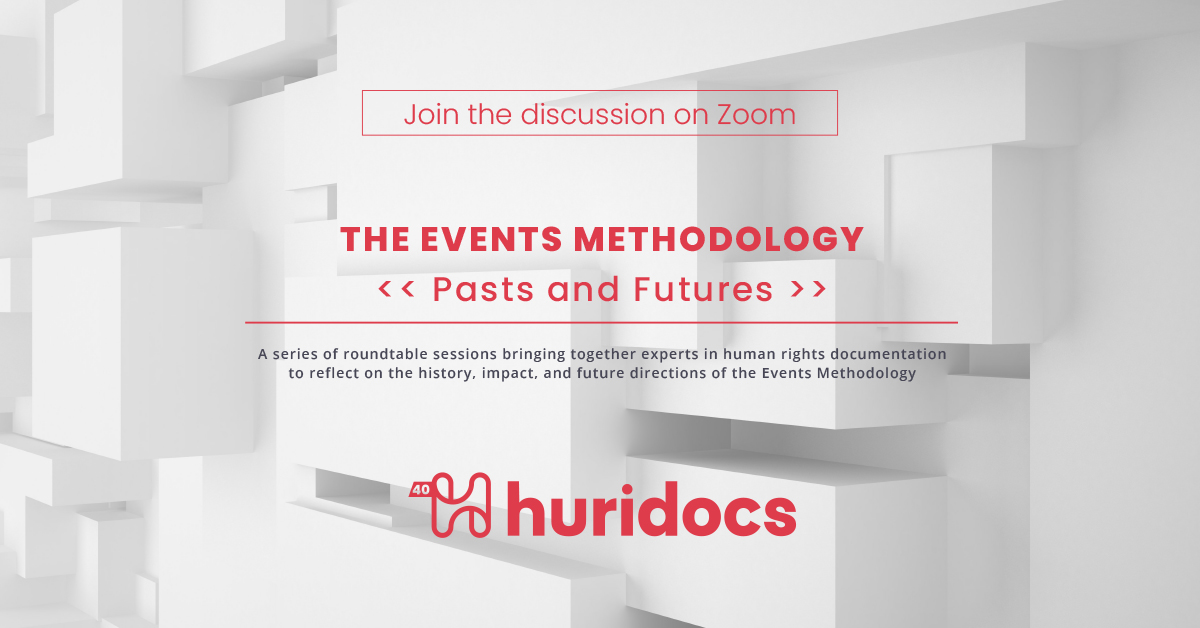This series of roundtable sessions bring together experts in human rights documentation to reflect on the history, impact, and future directions of the Events Methodology. Thirty years since its first publication, the Events Standard Formats (ESF) directly and indirectly has shaped human rights documentation initiatives across the globe including the interrelated functions of documenting violations, creating archives, developing databases, and pursuing justice. Since the publication’s last revision in 2001, there have been considerable shifts in the human rights landscape brought about by the successes and failures of various transitional justice mechanisms, the politics between local and international actors/instruments, the emergence of new cases of violations, the acknowledgment of various forms of justice, and the development of new technologies applied to documentation. We seek then to revisit the ESF to explore its potential future directions, and more broadly, the future of human rights documentation.
The roundtable sessions are hosted by HURIDOCS and supported by the Permanent Mission of Denmark to the UN in Geneva and the Däster Schild Stiftung.
Session 1:
The Events Method: A Look Back
This session reunites previous members of the HURIDOCS Task Force on Events and co-authors of the HURIDOCS Events Standard Formats: A Tool for Documenting Human Rights Violations (1993, revised 2001). Revisiting the history and development of the events method–three decades since its first publication– this session aims to ground and course the path of updating the methodology.
Judith Dueck
Co-author and Task Force Chair, ESF 1993 and 2001;
Former HURIDOCS Board Member and Vice Chair
Bert Verstappen
Former Senior Documentalist, HURIDOCS;
Co-author, ESF 1993 and 2001
Aida Maria Noval
Documentalist;
Former HURIDOCS Board Member
Bono Olgado
Documentalist, HURIDOCS
Moderator for both sessions
Session 2:
The Events Method: A Direction Forward
This session features various actors who have utilised, engaged, critiqued, and/or written about the events method through the years. From documenting violations on the ground to setting up human rights archives, and developing ontologies to designing databases, session speakers will discuss the impact, limits, and possible futures of the methodology given the changing landscape of the human rights field.
Ken MacLean
Strassler Center for Holocaust and Genocide Studies, Clark University
Fortify Rights
Jöran Lindeberg
Department of Computer and Systems Sciences, Stockholm University
Patrick Ball
Human Rights Data Analysis Group
Sara Torsner
Department of Journalism Studies, University of Sheffield
